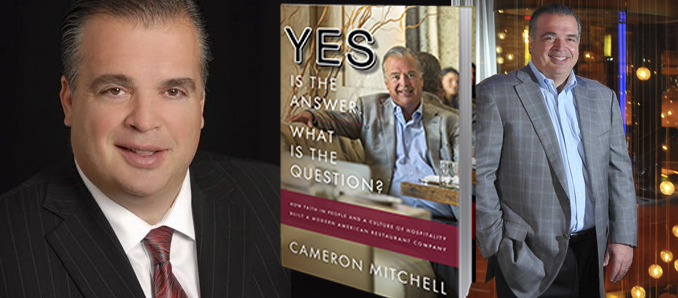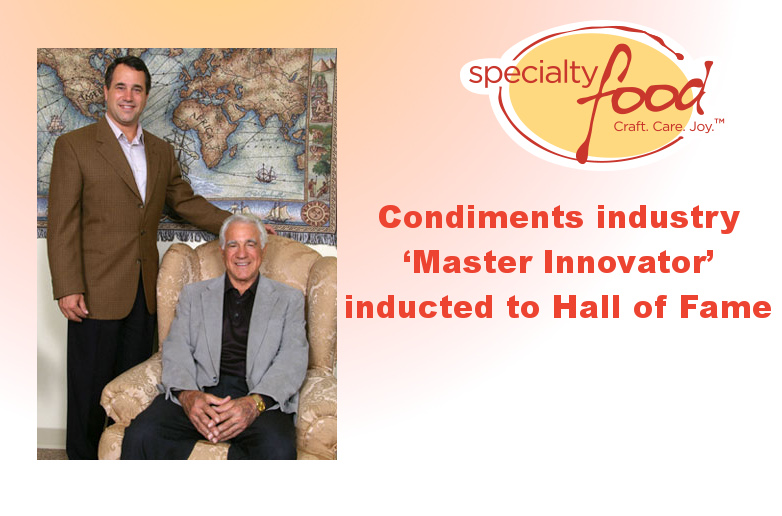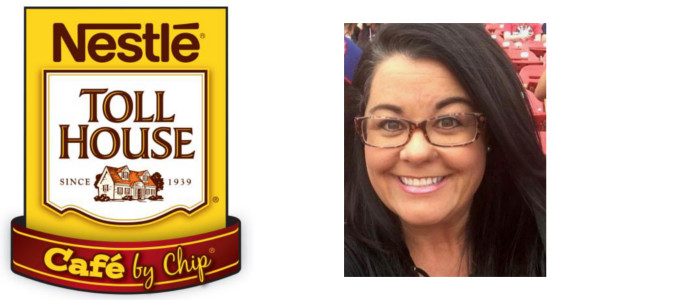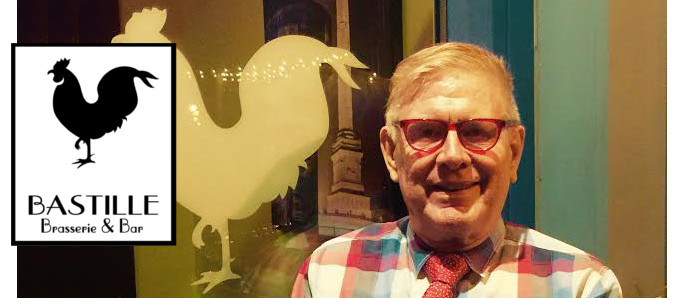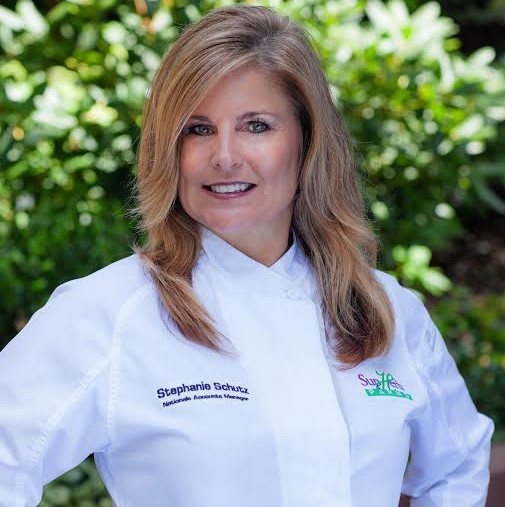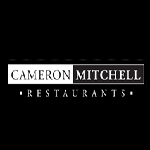 When Cameron Mitchell was in his late teens, working as a dishwasher because his high school GPA (1.5) didn’t get him into the Culinary Institute of America, he sat down at his mom’s kitchen table and mapped out the values and philosophies that would drive his future restaurant company. He did end up going to CIA and opened his first restaurant in 1993.
When Cameron Mitchell was in his late teens, working as a dishwasher because his high school GPA (1.5) didn’t get him into the Culinary Institute of America, he sat down at his mom’s kitchen table and mapped out the values and philosophies that would drive his future restaurant company. He did end up going to CIA and opened his first restaurant in 1993.
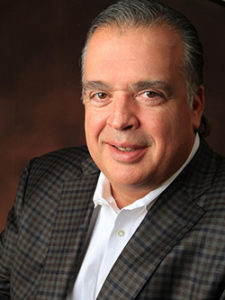
Columbus-based Cameron Mitchell restaurants turns 25 this year, tallied $300M in sales last year and fuels 32 award-winning restaurants under 15 different concepts, including the nationally-acclaimed Ocean Prime brand, now coast-to-coast; the Cameron Mitchell Premier Events catering company; and Buckeye Hospitality Construction, responsible for developing and managing the company’s new construction, remodels and special projects. CMR also oversees the growth and development of its sister company, Rusty Bucket Restaurant and Tavern, with 23 locations in six states.
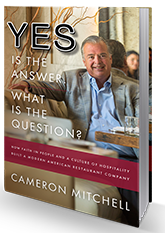 The success of the company is based on: “The answer is yes. What is the question?” – which is the name of Cameron’s new book coming out in October 2018. Part memoir, part business book, some takeaways for rising entrepreneurs:
The success of the company is based on: “The answer is yes. What is the question?” – which is the name of Cameron’s new book coming out in October 2018. Part memoir, part business book, some takeaways for rising entrepreneurs:
Culture is Key:
- When you launch a business, don’t start with a business plan – write down your culture and values first
- In my company, our people come first – not our customers. And that has fueled our success
- You can’t lead with integrity if you don’t put your people first
- In his first job as a manager, boss told him he had to change immediately. It was the turning point in his approach to leadership
- “Instead of worrying so much about how I did my job I switched my energy to helping other people do their jobs.”
- “This became a defining moment in my hospitality career.”
- I built a successful national restaurant company. The key to our success? Focusing on culture before profits
- “51% culture and 49% profit. We want to make a damn good profit. But we will never put profit on higher ground that our values. If that means we leave a dollar on the table not to sacrifice culture, that’s what we’ll do.”
- “Our culture and values became our compass. If something did not fit within the framework of the five questions and eight core values, then the company wouldn’t do it.”
- What the Great Recession taught me about the importance of embracing your culture and values more deeply in crisis.
- Tie into 10th anniversary of Great Recession
- Include amazing story of employee anxiety over layoffs, and the meeting Cameron had where he put it all on the table.
- Six keys to walking the talk when it comes to your company culture
-
- Make culture your most important priority (Job 1 is culture. Job 1A is profit. If you have to choose between profit and culture – choose culture)
- Put your employees first
- Believe in people
- Promote everyone’s wellbeing
- Communicate openly and honestly
- Get honest feedback from your employees so you can measure quality
- Our company culture is an anomaly in the restaurant world – and it’s why we’ve been so successful
- We close seven major holidays a year
- Generous PTO
- We want our people to make it to their kids’ events
- We give all associates three weeks notice before we close a restaurant
- We pay our associates when we are closed for a renovation
- We create pathways for upward mobility
- We don’t pay bonuses – they incentivize people to take shortcuts rather than do a good job overall
Lessons and Advice:
- How to overcome the emotional toll of rejection when raising capital
- I sold part of my business for $92 million – and got so arrogant that I almost destroyed what was left
- “I allowed the euphoria of our success to delude me”
- “Hardest of all was looking in the mirror and facing my hubris. I realized I’d made some of the exact same mistakes I’d made years before when we’d expanded too rapidly and stretch ed ourselves too thin. Why hadn’t I learned those lessons better?”
- “Told exec team ‘It took some shitty entrepreneuring to get us into this situation and it’s going to take some great entrepreneuring to get us out of it.’”
- The most painful feedback is usually the most powerful
- Why you must be willing to fire your customers
- “Over the years, I’ve had to fire both staff and guests for treating our associates poorly.”
- #METOO – “Back in the old days of the restaurant business when male guests came in and got drunk and then started touching or being rude to servers, it was standard operating procedures for management to ask the server to just take it. I’ve never operated that way and neither did our company because it was against our values.”
- “When someone was belligerent, I called the police. It was abundantly clear that one guest wasn’t worth it. If we were going to honor our culture and values, that our associates come first, we would never sacrifice our values of our culture over a random guest mistreating our people.”
- Other stories Cameron shared during Columbus visit:
- He said “you mess with our people, you’re gonna get the horn.”
- Had a guest arrested for pushing a valet driver.
- Fired guest who berated staff for towing his wife’s car.
- What I learned the hard way about growing your company too fast
- “By doing too much, too fast, we’d put ourselves in the position of compromising the soul of our company.”
- “We say we put our associates first – but I’d worked our team too hard. Incidents made it clear that our message wasn’t reaching the entire staff. We’d expanded too fast to staff our new restaurants with managers who lived and breathed our culture.”
- I believe in the power of second chances. But follow the three As to ensure your people learn from their mistakes
- “I stand on the shoulders of so many who gave me second chances”
- Server who consistently arrived late. GM wanted to fire her, but CM dug and found out she was having childcare issues.
- “No one in our company has made bigger mistakes than me. What’s most important is how we respond once mistakes have happened. We train our people to follow the three As: Act, Acknowledge, and Apologize.”



